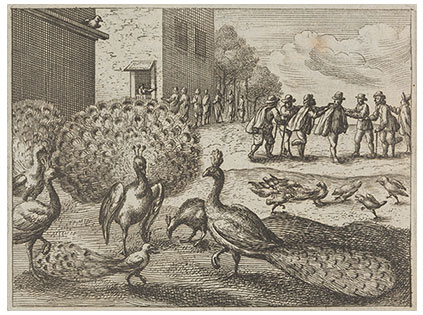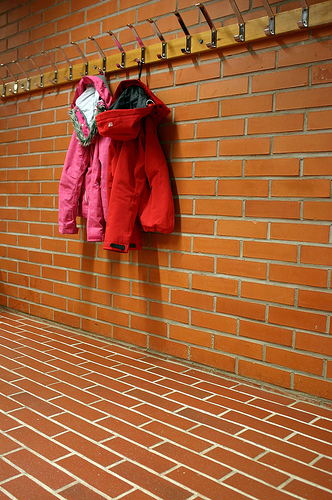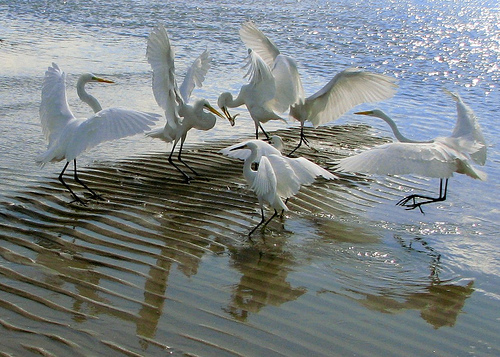
Just when you think you’ve been talking to the wall, you realise unexpectedly that some of your students have been listening when they suddenly start speaking from the heart to their peers and you realise that they get it.
I coordinate the co-curricular group, Competition Writing. I’ve blogged before about this group I inherited along with the title that didn’t sit right for me from the outset. Three and a half years later and the title remains but the philosophy of the group is changing before my eyes. I’ve been talking to my students about the passion for writing and learning community which is what I hope will become the focus of the group despite the title, but talking at students and becoming as a group are two different things.
The co-curricular groups are designed as an opportunity for students to take on leadership roles, and this is one of the reasons why it’s taken so long to get to this point – the start of a more democratic learning community. Students stepping up to the role of captain must have some sort of idea of what behaviour a leader exhibits, and the leaders in my time have been an assortment of personalities but with one thing in common: taking up all or most of the hour-long session with talking AT the students. They feel that they have to step up as experts and relay their ‘expertise’ to the students in a lecture style. Some have used the screen for powerpoint and occasionally videos (spoken poetry) but it’s interesting what their perception of teaching is – and how this implies that their experience as students has been as passive listeners, being taught to.
My library roster has not always allowed me to be present at these meetings (yeah, right? but this year is different) but occasionally I have snuck in and attempted to have a word to the group. My main objective has initially been to encourage students to share their writing in our blog, Unicorn Express, and I’ve spoken to them about the authentic reading audience – the fact that their writing is published and read by a global audience, not only read by their teacher; the opening up of constructive feedback and response by any reader – all the things that I think transform the act of writing from a prescribed thing to a real thing and which must affect the way writers feel. Yes, students write to improve writing skills and for a good mark, but more than that, everyone surely wants some kind of confirmation, something that affirms their ‘soul’ (and I feel entitled to use this word after reading bell hooks). All learning surely exists in a space where our whole person relates to others in a holistic way, not just the intellectual side of ourselves, not just the grammatical or stylistic side of ourselves as writers.
Last year our Writing Competition (always feel I use this word facetiously) leader did a great job running regular fortnightly meetings, with the energy of a confident extrovert. I’m grateful for that, but still I noticed that the students were sitting silently and listening for most of the session. Writing mainly took place outside the meeting. We also have a Facebook group which I created for communication but also in the hope of creating a space for sharing articles and interesting bits of information, ie. learning outside the meeting time. It’s been a place where I do all the sharing but at least I can see how many students ‘read’ the posts. Despite my constant encouragement, none of the students have inhabited this space as their own, and I’ve been stuck between thinking I should stop posting and thinking that if I did the space would die.
Anyway, back to what I was saying before. Last year, as I read the wonderful writing students posted to the blog, the same students who remained silent in the meetings and gave nothing of themselves away – and weren’t put in a position where they were challenged to – I started thinking that it might be interesting to encourage an introverted student to take the leading role. Yes, that was a risk, and last year’s leader was concerned about this, but it was a risk I really, really wanted to take. Leadership is not always extroverted, and can come from quieter, less confident students. Isn’t the leadership role an opportunity for all students to learn about how they can also be leaders and for the group to see all the many faces of leadership?
So this year we have a very different leadership – one student as captain and two co-captains. I know how talented they are, but I also know how challenging it is for them to stand up in front of the whole group (which is quite large) and win the attention and respect of the students. Having nominated them I have to trust them, and I do, but I also have to discipline myself not to step in too much and to let them run with it.
Last Friday the new captains ran their first meeting. They did a spectacular job, and my heart melted listening to how they talked about the purpose and philosophy of the group. They had been listening all the time! They completely understood what I had been talking about and trying to model with the blog and Facebook group. In about ten minutes (because they wanted to spend most of the meeting writing together) they said that, although members would have the opportunity to earn diploma points (all co-curricular groups did) and to enter writing competitions, they hoped that the group would be more about sharing the passion of writing and becoming a writing community (I’m paraphrasing). They encouraged students to post drafts to the blog, and talked about the writing process as the most important part of writing, and how feedback during this process was invaluable. They encouraged frequent writing and posting without worrying about imperfection or incompleteness. In the same way, they encouraged students to make themselves at home in the Facebook group (MHS Competition Writing) as a space to share whatever they found interesting or were passionate about. I was so proud; I was exhilarated!

And then they gave a writing prompt (‘A man walks into a bar and sees’) with a short time limit, and everybody wrote, and then brave people read their writing out. It wasn’t brilliant but it wasn’t expected to be. I felt the satisfaction in the group of being given the opportunity to write together, and then to share. I asked if students were comfortable to leave their writing (a short paragraph) with me, that I would post everything to the blog.
Speaking to the captains at the end of the meeting once everyone had left, they told me how nervous they were before the meeting, and I told them how fantastic they were, how they so naturally and beautifully responded with generosity to those students who read out their pieces, and how well they had prepared by thinking carefully about what they wanted to achieve in the session. Everyone had been involved in writing activity, and the expectations of the group had escaped the traditional confines beyond diploma points into the realm of joyful sharing of writing passion.
I’m excited about this group and look forward to see how it develops, and to documenting the progress of the writing community.
The wall has ears. Just when you think you’ve been talking to the wall, you realise unexpectedly that some of your students have been listening and that’s when learning happens.
Because #MOOCMOOC and Connected Courses have been about community building above everything (at least in my opinion), I am passionate about assisting my students to feel the joy of connected learning even as they learn within a program.











